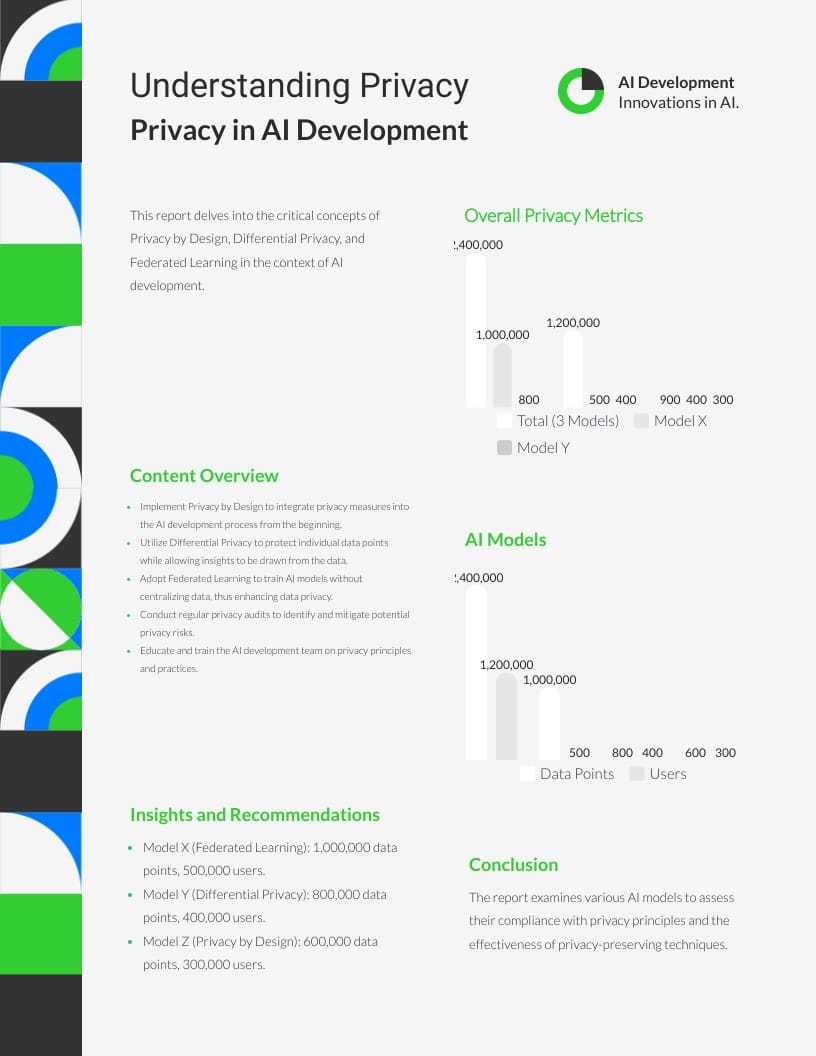Data Privacy in AI Applications: Insights from Experts.
In the rapidly evolving field of artificial intelligence (AI), data privacy remains a pivotal concern. As AI systems become more prevalent, they increasingly rely on large datasets, often containing sensitive personal information. This raises crucial questions about how these systems handle data privacy and what measures can be implemented to protect it. In this post, we delve into expert opinions and insights to explore the challenges and solutions related to data privacy in AI applications.
Understanding Data Privacy in AI
Data privacy refers to the proper handling, processing, and storage of personal information by AI systems to ensure the protection of individuals’ data from unauthorized access and misuse. With the expansion of AI applications in various sectors, safeguarding data privacy has emerged as a top priority for developers, policymakers, and users alike.
![Image Placeholder: AI data privacy visualization]
Caption: Visualization of AI systems and the vast data flows involved, highlighting potential privacy vulnerabilities.
Expert Insights on Data Privacy Challenges
Dr. Emily Harris, Chief Data Scientist at CyberSafe AI
Dr. Emily Harris emphasizes the complexity of managing data privacy in AI applications. She points out that the integration of AI in sectors like healthcare, finance, and marketing often involves handling vast amounts of personal data, making these applications prone to privacy breaches.
"AI systems thrive on data. The more data they have, the more efficient and intelligent they become. However, this necessitates a thorough examination of ethical data practices to safeguard individuals' privacy rights." – Dr. Emily Harris
Professor Alan Nguyen, Data Ethics Researcher
Professor Alan Nguyen highlights that one major challenge is the lack of transparency in AI processes, which makes it difficult for users to trust these systems fully.
"Opacity in AI decision-making processes can lead to a lack of user trust. Ensuring transparent data processing mechanisms is key to building user confidence and maintaining privacy." – Professor Alan Nguyen
Solutions and Approaches to Enhance Data Privacy
Privacy by Design
One proposed solution is the adoption of 'Privacy by Design' principles. This approach involves integrating privacy measures at every stage of the AI system's development lifecycle, ensuring that privacy is considered from the outset.
Differential Privacy
Differential privacy has emerged as a robust technique to enhance data privacy. This concept revolves around adding statistical noise to datasets, preserving individual privacy while allowing data to be used for analysis.
Example of implementing differential privacy in Python
import numpy as np
def add_noise(data): noise = np.random.laplace(loc=0, scale=1, size=len(data)) return data + noise
sensitive_data = np.array([1, 2, 3, 4, 5]) noisy_data = add_noise(sensitive_data) print(noisy_data) Federated Learning
Federated learning is another innovative approach that helps maintain data privacy by allowing AI models to be trained locally on devices, thereby keeping the data secure and decentralized.
"Federated learning decentralizes data management and gives users greater control over their personal information, minimizing data privacy risks." – Professor Alan Nguyen
Comparing Privacy Techniques

Future Directions and Recommendations
To bolster data privacy in AI applications, experts recommend:
- Enhancing regulations and policies that govern data privacy in AI.
- Promoting transparency in AI models to foster user trust and accountability.
- Encouraging collaboration between policymakers, developers, and experts to address privacy challenges collectively.
Conclusion
As AI continues to reshape various industries, addressing data privacy concerns becomes imperative. By embracing innovative techniques and involving experts in discussions, we can pave the way for AI applications that uphold the highest standards of data privacy. These efforts not only protect individuals' rights but also contribute to the sustainable growth of AI technologies.
By focusing on the challenges and solutions around data privacy in AI applications, this article provides a comprehensive overview of expert insights that can guide future developments in the field. Let us know your thoughts in the comments below, and feel free to engage with us on social media to continue the conversation about AI and data privacy.




